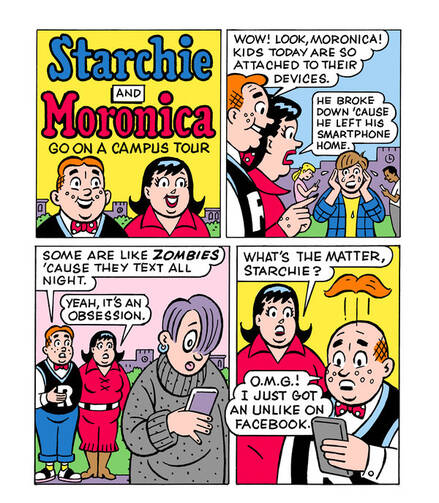On the heels of my most recent America column, Signal/Noise, which dealt with social media obsession, a friend sent me an essay from last week's New York Times titled "Looking for Intimacy in the Age of Facebook." It's a fascinating read. In the piece, Andrew Reiner--who teaches at Towson University--describes an exercise he does with students in which he requires them to send a text message to a friend that shares their true feelings about something this friend had done or said that upset them but hadn't discussed. Believe it or not it's actually intended as an exercise in risk taking.
Reiner has discovered that his students are so preoccupied with texting and social media that it's become painfully apparent to him that--despite their numerous Facebook friends and likes--the undergrads he's encountering are disconnected from any real depth in their relationships. "This is a generation so consumed with surface connection they will do anything to appear connected" he says. "Including pretending to text when alone so they don’t look, as one student said, “like a total loser without friends.”
Instead of a literature or creative writing course, Reiner believed his students needed "a guide to the twisted subterranean landscape beneath their plugged-in social lives."
Reiner again:
"A small but growing body of evidence suggests that excessive social media use can lead to an unhealthy fixation on how one is perceived and an obsessive competitiveness. Perhaps not surprisingly, this angsting can also lead to an unhealthy quest for perfection, a social perfection, which breeds an aperture-narrowing conformity."
In other words, the group he's named "The Porcelain Generation" have an overabundance of digital bandwidth they can use, it's the emotional bandwidth they lack.
Definitely worth checking out here...
Also, Signal/Noise...
P.S.: Speaking of bandwidth, only in an issue dedicated to an historic interview with Pope Francis could a column on gay priests get so little reaction! ;)
Check it out here.








